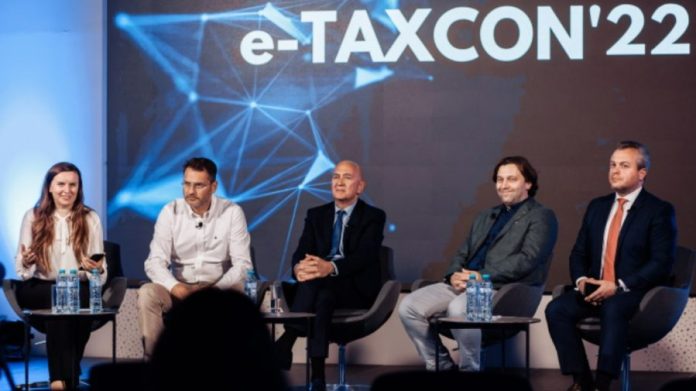“Receiving the status of a candidate country for accession to the European Union is a vote of confidence given to the Republic of Moldova, which makes it extremely responsible.” The statement belongs to the state secretary of the Ministry of Finance, Ion Gumene, who participated in the international conference in the field of taxation e-TAXCON’22, organized by the American Chamber of Commerce from the Republic of Moldova, writes Publika.md.
During the conference, the Secretary of State mentioned that harmonizing legislation or implementing directives does not just mean copying them, but is a process of adapting national policies to the recommendations of European directives.
“In the part related to the RM-EU Association Agreement, we have a backlog regarding excise duties on tobacco products. However, only the adaptation of the legislation may be insufficient in this case. If we do not also produce corrective or additional policies, we will probably find ourselves with the increase of smuggling in this area and with fiscal imbalances, that is why it is very important in this process to realize that we do not just have to automatically take over the European rules, but we have to develop national public policies aligned with the Community Aqui, so as to ensure that we harmonize our legal framework in a sustainable way”, added Ion Gumene.
FOR THE MOST IMPORTANT NEWS, FOLLOW US ON FACEBOOK!
Currently, in Moldova, the principle of fiscal predictability is applied for a period of 3 years related to excise duty rates for alcoholic products, petroleum products and tobacco products. The calendar for the years 2021-2023 provides for an annual increase in excise duty on tobacco products of 15%.
According to Gumene, with the receipt of the candidate country status, the topics of discussion will be some extremely important documents on the fiscal dimension at the EU level. More precisely, we are talking about the Directive on the minimum effective rate of profit tax, the Directive on measures to combat tax evasion and many other documents that will be required to be harmonized, including the dimension of automatic exchange of tax information with EU countries in the basis of the Directive on the exchange of information between public authorities.
Finally, the state secretary of the Ministry of Finance mentioned that the status of a candidate country for EU membership requires an agenda that we undertake to carry out with maximum responsibility, and at the moment, working groups are being formed on the Government platform, which will start in a few months actually working on the opening of negotiations, the actual negotiation and their conclusion.


